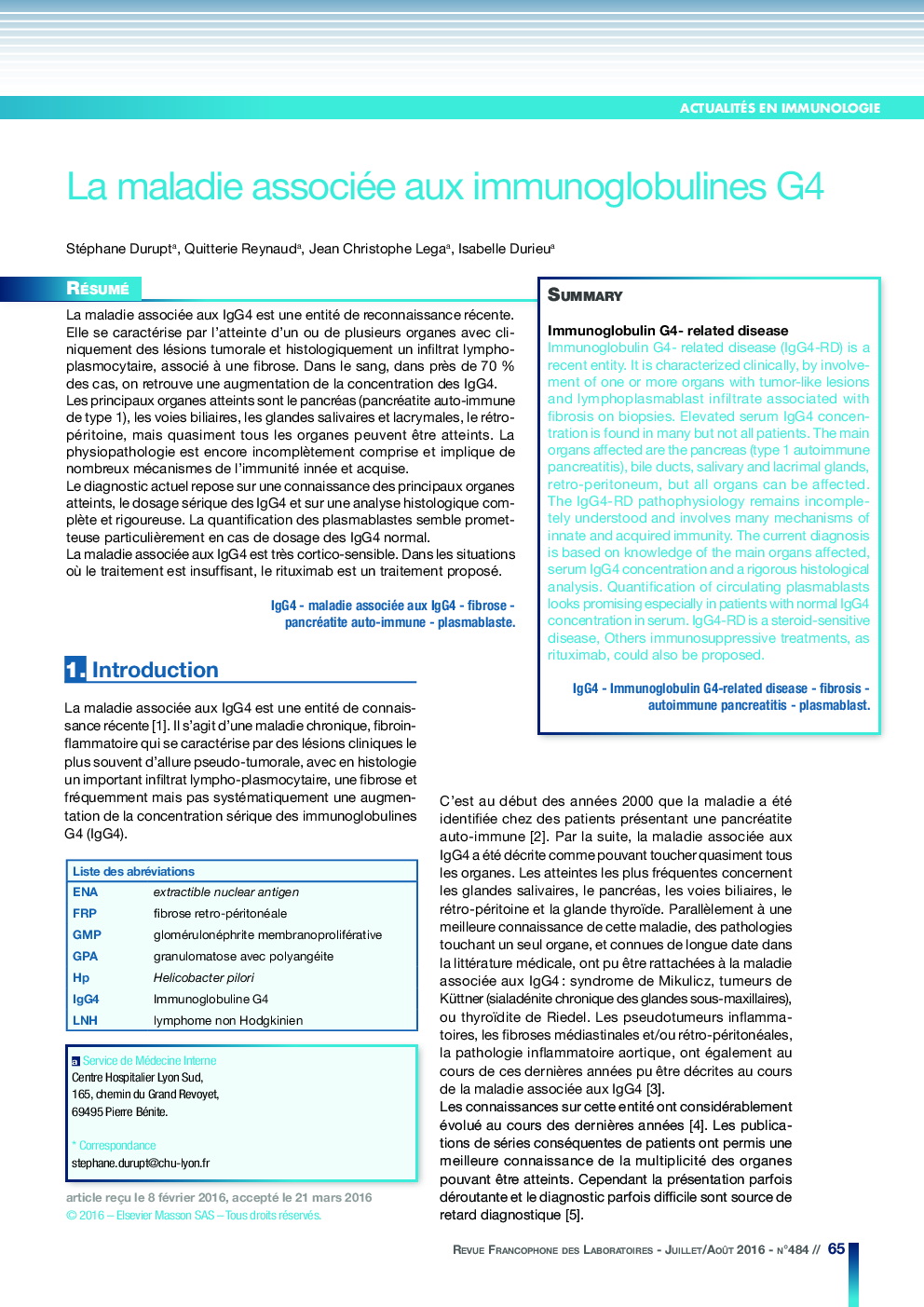| Article ID | Journal | Published Year | Pages | File Type |
|---|---|---|---|---|
| 7646012 | Revue Francophone des Laboratoires | 2016 | 8 Pages |
Abstract
Immunoglobulin G4- related disease (IgG4-RD) is a recent entity. It is characterized clinically, by involvement of one or more organs with tumor-like lesions and lymphoplasmablast infiltrate associated with fibrosis on biopsies. Elevated serum IgG4 concentration is found in many but not all patients. The main organs affected are the pancreas (type 1 autoimmune pancreatitis), bile ducts, salivary and lacrimal glands, retro-peritoneum, but all organs can be affected. The IgG4-RD pathophysiology remains incompletely understood and involves many mechanisms of innate and acquired immunity. The current diagnosis is based on knowledge of the main organs affected, serum IgG4 concentration and a rigorous histological analysis. Quantification of circulating plasmablasts looks promising especially in patients with normal IgG4 concentration in serum. IgG4-RD is a steroid-sensitive disease, Others immunosuppressive treatments, as rituximab, could also be proposed.
Keywords
Related Topics
Physical Sciences and Engineering
Chemistry
Analytical Chemistry
Authors
Stéphane Durupt, Quitterie Reynaud, Jean Christophe Lega, Isabelle Durieu,
